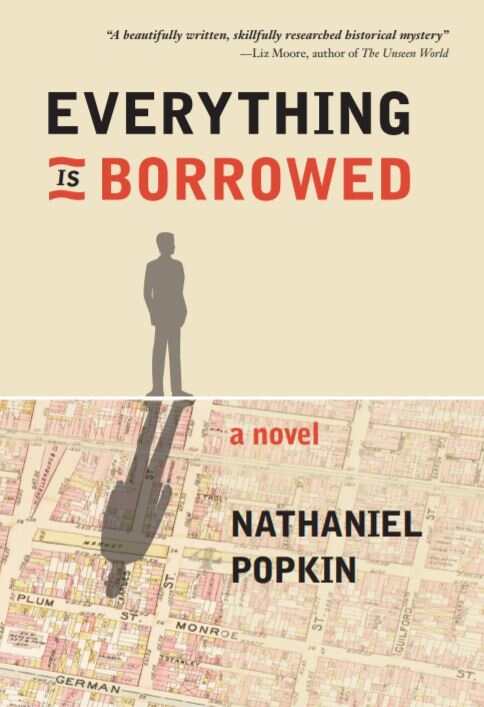Everything Is Borrowed
A Novel
In his new novel Everything Is Borrowed, Nathaniel Popkin looks through the eyes of a modern-day architect to explore how a city’s history can echo through the years. Popkin expertly plays with time. His writing is beautifully layered, and the book’s parallel stories tie together in unexpected ways that keep a seemingly simple plot engaging throughout.
When the story begins, esteemed Philadelphia architect Nicholas Moscowitz is working on a key commission from a wealthy real estate developer, but he feels little motivation to get the job underway. While researching the history of the site, he learns about another Moskowitz who lived there in the late 1800s and made his own mark on the area.
The previous Moskowitz was a radical Jewish activist. He made headlines for his taboo protests, including a major one on Yom Kippur, and faced jail time for having antiestablishment views at a time when the country feared anarchist threats. Eventually, he became a leader in the same Jewish community he once railed against. His story could be a novel in itself, but Popkin’s treatment is even more impressive.
The present-day Moscowitz becomes fascinated with the life of his predecessor, poring over local histories to learn as much as he can about the man’s activities. At the same time, he thinks back on the major events of his own life: his failed relationships, old friendships that have evolved over time, his feelings for his assistant. Through this process, the activist Moskowitz and his experiences are integrated with the architect’s own past, and the commission to create a building becomes fraught with questions about erasing the past versus preserving the city’s architectural bones.
The story moves smoothly between the present day and the events Nicholas reads about. Popkin creates an almost dreamlike feel as he reveals the layers of his story, piling them atop one another just as cities build their futures upon the remainders of their pasts.
Reviewed by
Jeff Fleischer
Disclosure: This article is not an endorsement, but a review. The publisher of this book provided free copies of the book to have their book reviewed by a professional reviewer. No fee was paid by the publisher for this review. Foreword Reviews only recommends books that we love. Foreword Magazine, Inc. is disclosing this in accordance with the Federal Trade Commission’s 16 CFR, Part 255.

